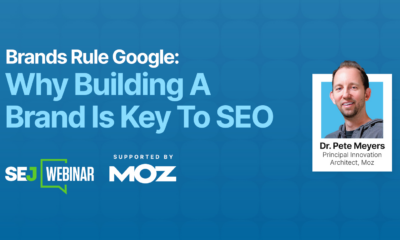SOCIAL
Meta Promotes Former British MP Nick Clegg to Key Role Shaping its Broader Narrative, and Responding to Concerns

Meta has made a key announcement as part of its ongoing effort to better ingratiate itself with world leaders, and avoid potential legal challenges and restrictive regulation, with current Vice‑President for Global Affairs and Communications Nick Clegg promoted to a new role which will give him more responsibility for shaping the company’s outreach and communications in this respect.
As explained by Meta CEO Mark Zuckerberg:
“I’ve asked Nick Clegg to take on a new position as President, Global Affairs. For the last three years, Nick has managed some of the most complex issues our company faces – including content policy, elections, the establishment of the Oversight Board, and more. Nick will now lead our company on all our policy matters, including how we interact with governments as they consider adopting new policies and regulations, as well as how we make the case publicly for our products and our work.”
As Zuckerberg notes, Clegg, who once served as the Deputy Prime Minister in the UK, has been Meta’s front man in explaining its position on various challenging elements. Clegg has become known for his long op-eds and blog posts, which seek to re-frame certain narratives. And while there’s an undeniable credibility to having such a high profile former politician as its spokeperson on such matters, there have also been questions about Meta’s approach, as it leans into politicization and spin, as part of its PR effort.
Indeed, a key concern in this respect is that by appointing a career politician (Clegg served as a British MP for 12 years), that then changes the motivations for Meta’s PR outreach and disclosure, because the motivations for a politician are very different to those normally adopted by a private company in this respect.
For a politician, all PR is about winning, about framing the opposition as negative, and diluting their points, while also highlighting the positives of your own policies and stances, generally in a totally biased and specifically angled way.
For Meta, that’s not necessarily a good thing, because that could then lead to it downplaying negative reports and insights, in order to ‘win’ by showcasing benefits, or at the least, watering down such criticism.
In Meta’s case, in operating the biggest inter-connected network of humans in history, it has huge potential to influence key elements, and cause seismic shifts in the political landscape, while also facilitating misinformation and other potential harms on a massive scale.
We know this, and we also know that Clegg’s position on such thus far has indeed been to play it down, and point to conflicting evidence as a means to deflect responsibility and counter scrutiny.
Is that a good thing? Should Meta be looking to deflect and redirect, when it could be taking a deeper look at its operations instead, and addressing these key concerns, rather than avoiding them?
That’ll be an even bigger question in the coming metaverse shift, with many people already raising concerns about the potential harms of harassment and abuse in these more immersive digital spaces. If anything, Meta’s tools will likely have even more impact moving forward, and as such, it will need to be held accountable, and pushed to address these issues, rather than minimizing them as it seeks to dominate the next tech space.
Meta wants to ‘move fast’ and ‘build awesome things’, but that also requires deeper consideration of the impacts of such too, and while Clegg may be good at rebutting claims, that may not be the best approach.
But Meta is also a private company, and as such, it can take whatever approach it deems fit in countering such narratives.
Zuckerberg says that Clegg’s new appointment will enable him to focus more energy on leading the company, while it will also support CTO Sheryl Sandberg as she continues to focus on other elements, as opposed to both being called upon to defend Meta’s position.
So expect more long essays from Clegg explaining why theories about Meta’s negative influence are wrong, and why the metaverse will be really, really good, despite concerns.
Which, to me at least, is definitely a concern in itself.
Source link



















You must be logged in to post a comment Login